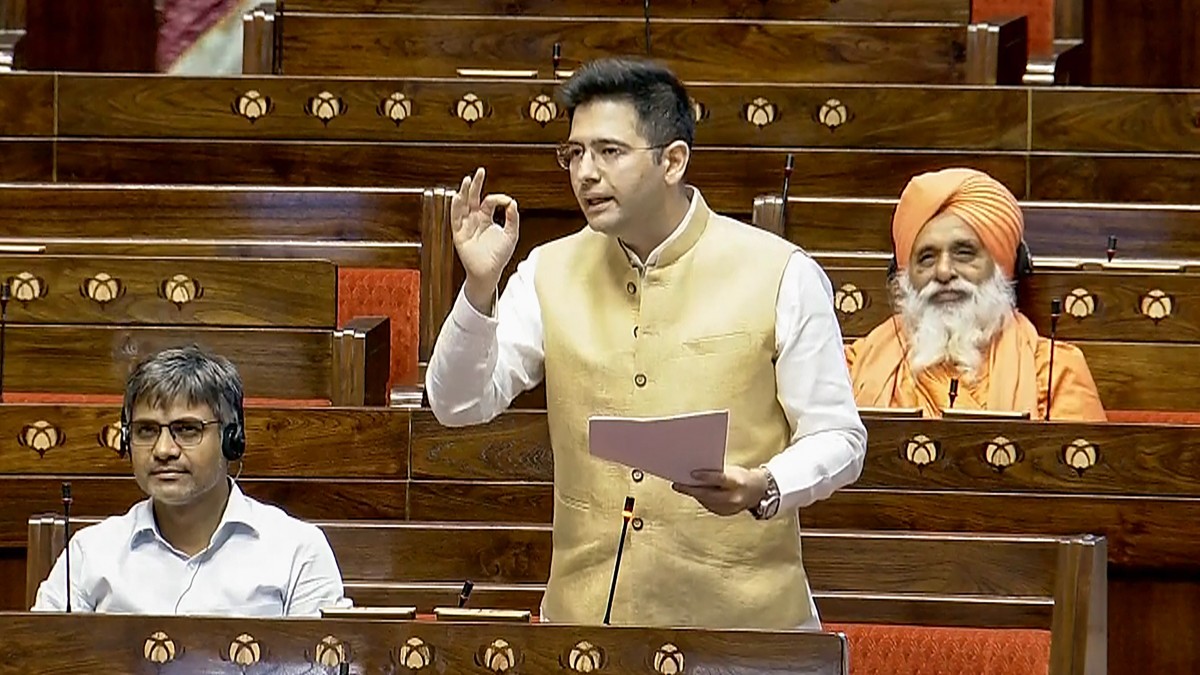Rajya Sabha MP Raghav Chadha on Thursday hit out at the centre over the Union Budget 2024 by saying that the country is paying taxes like England and receiving services like Somalia.
Speaking during the discussion on the Union Budget in the Rajya Sabha, he called the budget as disappointing and said it failed to satisfy any section of society, including BJP supporters and voters.
"Usually when a Union Budget is presented, some sections of society are happy while others are not. However, this time, the government has managed to displease everyone. Even BJP supporters are unhappy," Chadha said in the parliament.
ALSO READ | Bring Back Maharaja Ranjit Singh's Golden Throne From UK, AAP MP Raghav Chadha Urges Centre
Emphasising the taxation burden, he stated, "In the last 10 years, the government has been taking around 70-80 per cent of the public's income through taxes such as Income Tax, GST, and Capital Gains Tax. What does the public get in return?" He questioned the quality of services provided by the government, adding, "We pay taxes like in England but receive services like in Somalia. What kind of world-class healthcare, transportation, and education is the government providing us?"
Commenting on the performance of the BJP in the recent Lok Sabha elections, the Rajya Sabha MP noted, "In 2019, the BJP government had 303 seats, but the people of the country imposed a GST of 18 per cent on those seats, bringing them down to 240."
"The primary reasons for this decline are economy, economy, and economy," he said, attributing the BJP's lower seat count to economic concerns.
Chadha emphasised that over the previous 25 months, real rural wages have been "consistently declining" and that rural income growth is at a "decadal low". In addition, he expressed worries about per capita income, unemployment, and food inflation.


